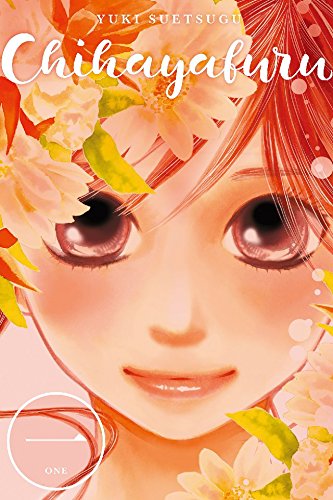By Yuki Suetsugu. Released in Japan by Kodansha, serialization ongoing in the magazine Be Love. Released in North America digitally by Kodansha Comics. Translated by Ko Ransom.
It has become very difficult these days, as manga fandom expands and grows more varied, to state outright that a series will “never be licensed”. Sure, there’s still a few holdouts that can boast that – I’m looking at you, Hajime to Ippo – but for the last few years we have lived in a renaissance of “oh my God I never thought we would get this title!”. In particular, seeing josei series on a regular basis is something that is welcome and heartwarming. And, in fact, Chihayafuru pulls off a troika. It’s josei, running in Kodansha’s Be Love, which has almost never been mined for licenses; it’s a big comeback for the author, whose career was on ice after a plagiarism scandal – this is her magnificent return. And it’s also a sports manga, something which may not be obvious when you look at its cover, but really sinks in after reading the first couple of chapters.
Of course, you could argue we’re overlooking another big reason why this was an unlikely license, which is the subject matter. This is a manga about a group of kids and their love for Hyakunin Isshu Karuta, a Japanese game that combines memory with one hundred famous poems – you’re given the start of the poem, and need to find the card with the second half of it. It requires speed, smarts, and a certain amount of guile – there’s a lot of smacking of cards here that made me raise an eyebrow and wait for a foul to be called, but that never happened. Playing this game is our heroine, Chihaya, whose name is similar to the start of one of the poems. She’s a brash tomboy who tends to always say what she’s thinking, which gets her in trouble. She’s friends with Taichi, a smart young kid with an oppressive mother – he carries both a chip on his shoulder and a crush on Chihaya. And then there’s the new student Arata, made fun of for his heavy local dialect (which is nicely adapted here by Ko Ransom – I’m reminded somewhat of the way Sweden has been translated in Hetalia, only more coherent) but a whiz at karuta. He gets the other two kids involved, and Chihaya in particular discovers that her speed and acute hearing are a boon.
Fans of the anime may be surprised to see that this entire volume takes place in elementary school – the adaptation made this a flashback after introducing her in high school. It’s still a good start, introducing the strengths and weaknesses of our leads, and having a romantic triangle that pretty much isn’t yet because they’re kids, but you can see it bubbling anyway. Unfortunately, everything comes to an end with Taichi going to a different middle school, and Arata having to move again due to the health of his grandfather (a world-famous karuta player). Will they ever meet again? Signs point to yes. In the meantime, with its engaging characters, dynamic art, and the ability to explain a complex sport/game without getting bogged down in exposition, Chihayafuru is a must read. It’s digital only, but if enough people get it, print may be feasible. Go get it, it’s worth it.


I wonder if the odds have improved at all for 7SEEDS getting licensed here. VIZ/SuBLime have a couple of digital-only titles, but they’re not making as big a deal out of them as Kodansha is.